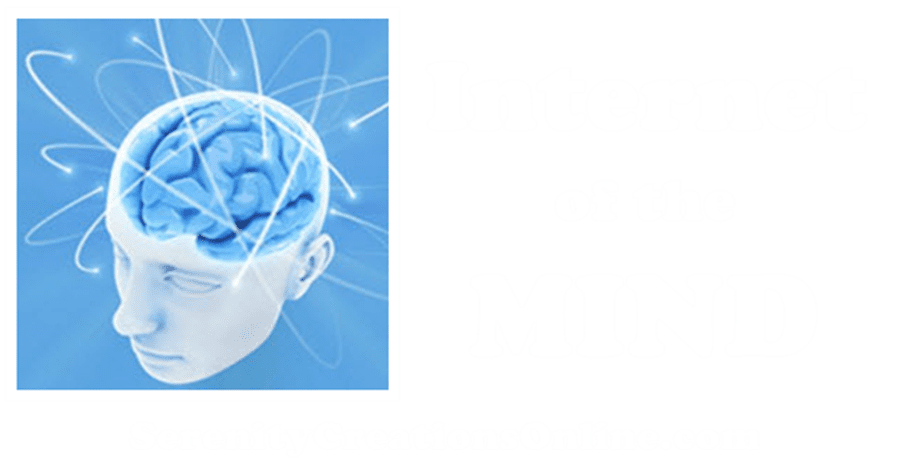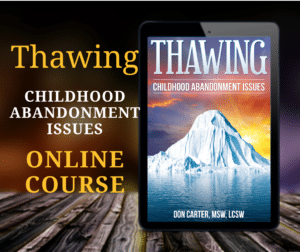
Enabling Behavior is Loving Too Much
Enabling behavior is born out of our instinct for love. It’s only natural to want to help someone we love, but when it comes to certain problems — helping is like throwing a match on a pool of gas. Review the Iceberg Presentation to understand the model referred to in this video. Also, learn more about codependency and addiction at our Serenity Cafe Recovery Center.
Enabling Behavior Video
Definition of Enabling
In the true sense of the word, to enable is to supply with the means, knowledge, or opportunity to be or do something — to make feasible or possible. In its true form, then, Enabling behavior means something positive.
It’s our natural instinct to reach out and help someone we love when they are down or having problems. However, when we apply it to certain problems in living such as addiction, chronic financial trouble, codependency, certain forms of chronic depression — enabling behaviors have the reverse effect of what is intended.
Examples of Enabling Behavior
- Repeatedly bailing them out – of jail, financial problems, other “tight spots” they get themselves into
- Giving them “one more chance” – then another…and another…
- Ignoring the problem – because they get defensive when you bring it up or your hope that it will magically go away
- Joining them in the behavior when you know they have a problem with it – Drinking, gambling, etc.,
- Joining them in blaming others – for their own feelings, problems, and misfortunes
- Accepting their justifications, excuses, and rationalizations – “I’m destroying myself with alcohol because I’m depressed”.
- Avoiding problems – keeping the peace, believing a lack of conflict will help
- Doing things for them that they should be able to do for themselves
- Softening or removing natural consequences of their problem behavior
- Trying to “fix” them or their problem
- Repeatedly coming to the “Rescue”
- Trying to control them or their problem
Enabling: the Addiction of the Codependent

When we find it very difficult, if not impossible, to stop enabling behavior then it is time to look at the possibility of being “addicted to the outside.” Read on to explore the stages of Codependency, aka “Addiction to the Outside” (of Self), and how these stages parallel the stages of addiction. The need for an external focus, along with other lessons of childhood prepares a person for addiction to enabling behavior.
Take a look at how the symptoms of alcoholism match the symptoms of codependency…
Early Stage (Codependency)
- Relief Using or Enabling – Comfort eating, spending, working or “helping” someone with their problem in order to avoid an internal focus and experience the “payoff”.
- Increase in Tolerance – for the behaviors of the problem person.
- Preoccupation – with the problem person or persons
- Loss of Control – over emotions or behavior (Excessive eating, yelling at the kids)
- Continued Use (of enabling behavior) Despite Serious Negative Consequences – to yourself as well as them
Middle or “Crucial” Stage
- Family Problems – Drama Triangle or a variation of it that I like to call the “Punishment/Forgiveness Cycle”
- Social Problems – Embarrassment, avoiding parties where they may be “too much temptation” for your partner.
- Emotional Problems – Depression, anxiety, chronic stress
- Financial Problems
- Legal Problems – Domestic disturbances
- Occupational or Academic Problems – Loss of concentration due to preoccupation with the problem person or persons
Late or “Chronic” Stage
- Physical Deterioration – headaches, stomach problems, stress disorders, etc
- Serious Physical Withdrawal Syndrome – cannot stay away after a break-up or separation
- Obsession – preoccupation increases until it takes the majority of your thoughts
- Loss of Social Supports – stop seeing friends and begin to isolate, other people give up trying to get you to see what you are doing
- Collapse of the Alibi System – can no longer make excuses for yourself OR the problem person
- Drinking, Using Prescription Meds, Eating, Working, etc. to keep functioning or “feel normal”
- Hopelessness and Despair
- Untimely Death – accident, suicide, illnesses secondary to the Codependence.




